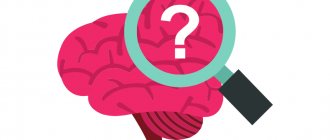What is stress and where does it come from?
We are accustomed to perceiving stress as something negative, but in fact it is simply a reaction of the body, a response to overstrain, strong emotions, both positive and with a negative connotation. In this condition, the hormone adrenaline is actively produced, forcing a person to think about the situation and look for a way out of it. Causes of stress can be :
- conflicts with colleagues, relatives, friends;
- dissatisfaction with yourself, your achievements or appearance;
- constant lack of money, debts;
- routine lifestyle without vacation, proper rest;
- illness or death of a loved one;
- job loss;
- loneliness.
Recently, stressful conditions have often developed against the backdrop of the coronavirus pandemic. This is caused by a constant fear of getting sick, a strong concern for loved ones, and the inability to maintain the usual way of life.
Relieving stress: advice from a psychologist
In order to relieve stress, you need to be able to recognize, accept and deal with its causes:
- Try to react less to minor irritants.
- Look at the problem as a challenge, a way to become better, more experienced.
- Accept the things you cannot control.
- Surround yourself with people with a positive attitude who look at the glass and claim it is half full.
- Breathe more in the fresh air, do yoga, read a motivational book.
- Go in for sports, then you will not have time for bad thoughts, plus improve your memory and health.
- Get enough sleep, listen to rhythmic music and spend time with loved ones.
- Give yourself a hobby.
How does stress develop?
But when stress occurs too often or exceeds the body’s capabilities, it begins to weaken and lose strength.
It can even lead to serious illness. three phases in the development of stress :
- mobilization of the body's defenses and resources to combat the stress factor. At this stage, hormones are released that give a boost of energy;
- confrontation - searching for a way out of the situation. The body tries to return to normal functioning due to hormonal changes;
- exhaustion – with prolonged exposure to traumatic circumstances, the body loses the ability to resist, adapt and becomes vulnerable to all kinds of diseases.
The severity of each stage depends on the individual characteristics of the person, his state of health, type of temperament, character.
What criteria indicate that a person is experiencing stress?
American futurist Raymond Kurzweil, in his book “The Singularity is Near,” writes that the surge in technological development that we have seen in recent decades has caused an acceleration of progress in all areas.
The world is becoming less and less predictable. Technological breakthroughs have also occurred in medicine. For example, neurophysiology has ceased to be exclusively an area of scientific interest and is rapidly becoming part of clinical practice. The tasks of medicine in the modern world have also changed. A modern person wants to be physically and psychologically healthy, wants to maintain a high quality of life and the ability to enjoy life, be flexible, cope with stress, quickly comprehend complex problems and make decisions in conditions of uncertainty. Adaptive medicine combines modern diagnostic techniques, preventive and therapeutic measures to increase a person’s adaptive capabilities and control stress. STRESS IS A NATURAL NON-SPECIFIC REACTION OF THE ORGANISM TO ANY EVENT THAT COME INTO OUR LIFE. THIS REACTION IS OFTEN CALLED GENERAL ADAPTATION SYNDROME.
The body adapts to stress factors, trying to restore and maintain internal balance - a whole cascade of physiological processes occurs that combat the stressor. Stress reactions help us cope with difficulties every day and are very useful.
However, everything has its limits. Resources for adaptation to a stressful environment are depleted when the body is exposed to a stressor for too long or the stressor is too intense. The consequences of excessive stress affect almost the entire body, primarily the central nervous system, neuroendocrine and immune systems, and specific target organs of stress (digestive, cardiovascular system, and others).
For example, X-Clinic has a quick diagnostic procedure that will help you determine the state of the systems involved in the reaction to a stressor - “neuroenergometry”, or stress resistance research. In five minutes we get a computer analysis of heart rate variability and brain DC potential (direct current potential - constant slow-wave activity).
The scope of the examination must be determined together with your doctor. In modern conditions, it is optimal to undergo annual check-up programs, which allow you to assess the condition of all organs and systems and timely identify changes in condition. We offer a comprehensive basic and advanced program for men and women.
Of the laboratory methods for identifying high levels of stress, first of all, it should be noted the determination of the level of steroid hormones contained in saliva - cortisol and DHEA, which take part in the neuroendocrine mechanisms of the development of stress, as well as reflecting the stages of its course and the adaptive capabilities of the body. In addition, it is very important to identify an imbalance of neurotransmitters (adrenaline, norepinephrine, serotonin, dopamine) - special substances that regulate our behavior, mood, activity, libido, ability to relax and provide good quality sleep. The vitamin and antioxidant profile and the level of amino acids, the most important components involved in the synthesis of neurotransmitters, hormones and signaling molecules, are also examined.
Symptoms and signs of stress
There are a number of symptoms that
appear in most people who find themselves in a state of stress. Physiologically this manifests itself in:
- a sharp drop or, conversely, an increase in pressure;
- attacks of chills or fever;
- increased sweating;
- dizziness;
- digestive disorders;
- significant weight gain or loss;
- muscle hypertonicity and tremor (shaking).
Headaches, pain in the stomach and back often occur, and rashes similar to allergic ones may appear. Stress is accompanied by loss of sleep and appetite .
Do the oxygen capsules that are so popular in Japan really work?
Such capsules were first created in Japan, but now they are appearing all over the world - not only in medical institutions, but even in fitness centers.
The procedure is called normobaric oxygenation. A higher concentration of oxygen is created in the oxygen capsule - 30% (oxygen content in atmospheric air is almost 21%) with a minimal increase in pressure (1.1–1.5 ATA). During the session, organs and tissues are enriched with oxygen. According to modern research, 30 minutes in such a capsule is equal to 24 hours in a pine forest. The procedure has a powerful neuroprotective effect, helps neutralize the effects of hypoxia of various natures, including after a Covid-19 infection, and increases the body’s adaptive capabilities.
How does stress affect the body?
Severe or prolonged stress may well cause the development of diseases.
In this case, the most weakened systems of the body suffer, so the consequences vary from person to person. Against the background of a stressful state, the following may develop :
- bronchial asthma due to constant tension of the muscles involved in the respiratory system;
- hypertension, heart and vascular diseases due to constantly high blood pressure and rapid heartbeat;
- peptic ulcer;
- neurotic and depressive disorders;
- damage to the gastric mucosa due to increased production of gastric juice;
- diabetes – due to the liver releasing an additional portion of glucose and increasing its concentration in the blood;
- gynecological problems up to infertility.
It is impossible to predict exactly what problems stress will provoke. Moreover, they can appear individually or in groups, or all at once, in a complex.
Diagnostics and therapeutic procedures
That is why modern medical anti-stress programs must necessarily include diagnostic techniques and a set of therapeutic procedures to restore the state of the brain. You should always start with diagnosis - it is important to determine what kind of dysregulation of the central nervous system a person has. The rapid development of neuroscience (primarily neurophysiology) has made it possible to study deep physiological mechanisms, explaining from a scientific perspective the formation of stress-related disorders.
How to avoid stress?
The effect of serious stress on the body is clearly negative. But doctors and psychologists have perfectly studied the mechanism of development of such conditions and have found many ways to prevent and combat them. The most interesting thing is that there is nothing complicated about preventive measures. For example, the following help prevent stress :
- morning exercises, regular sports training, especially those related to water (swimming, water aerobics);
- regular rest, preferably in nature;
- reasonable planning of the working day - alternating periods of intense work and proper rest;
- healthy sleep - at least 7-8 hours a day, not once a week, but every day;
- complete nutrition.
As you can see, these are typical tips for those who want to lead a healthy lifestyle
. Hence the conclusion: it is he who is the most terrible enemy of stress.
Brain mapping
For these purposes, we use advanced functional brain mapping, which allows us to study the bioelectrical activity of the brain and create a 3D map of the most significant changes. In some cases, especially if sleep disorders come to the fore, it is necessary to conduct a computer somnography, that is, to study night sleep. Based on the results of the diagnostics, the doctor will select an individual neurotherapeutic recovery program. At X-Clinic we have selected the best methods that have been created in the world to restore the psycho-emotional state and increase resistance to stress.
How to help yourself?
But if you constantly worry about one thing or another, neither 8 hours of sleep nor proper nutrition will help protect you from stress.
This means you need to pay attention to your mental health. First, you need to determine exactly what exactly worries and excites you, i.e. find the cause of stress. Having identified the source of the problem for yourself, look for ways to distract yourself, switch to pleasant activities, for example, meeting with friends, reading, going to the theater or concert. It also happens that the source of stress is part of your life, and there is no way to change it. But even in such a situation, no one bothers you to change your own attitude towards circumstances. It wouldn’t hurt to analyze your experiences, but do it as if from the outside. It is quite possible that it will turn out that the events that took place are not at all worth such strong emotions. Try to focus on the positive
,
because when we are upset, life situations seem much worse than they really are.
Is there a special diet to combat stress?
There is such a thing as “stress eating,” and most often the choice falls on not the healthiest food.
However, knowing which foods can reduce stress levels, we can protect ourselves from extra pounds or other related problems. Such products are meat, seaweed, chicken eggs, seafood (clams, mussels, oysters), fatty fish, herbs and vegetables (chard, parsley, garlic, broccoli) and berries such as blueberries. Herbal teas will also help reduce stress levels - chamomile (calms and improves sleep) and matcha (contains L-theanine, an amino acid with powerful anti-stress properties).
If all else fails
But what to do if you signed up for fitness, walk the dog for a long time every evening, go to bed no later than 23.00 and are seriously interested in knitting, but you still can’t cope with stress? First of all, don’t despair
and don’t get depressed.
If you don't know how to change a faucet, you call a plumber, right? It’s the same with stress: if you couldn’t resolve the issue on your own, contact a psychotherapy specialist .
psychotherapeutic techniques are used to combat stress ,
so you will have the opportunity to choose what suits you:
- Cognitive-behavioral therapy – psychological training that allows you to identify negative thoughts, analyze them, change your behavior pattern, attitude towards a specific situation;
- art therapy – the so-called “art treatment”, which allows you to throw out emotions and understand yourself;
- auto-training – training in methods of controlling breathing and muscle tone, changing internal attitudes.
There are a lot of such methods; an experienced specialist will definitely help you choose the most suitable and effective option.
How do you know when to see a doctor?
The goal of the stress response is to adapt to life events and return, physiologically and psychologically, to its original state. If usually it was enough for you to change your environment for a couple of days, add spa treatments or massages, streamline your sleep, but now this does not help, your performance decreases or new symptoms appear, your mood changes, anxiety appears, sleep is disturbed, your appetite decreases or increases, If your resistance to colds decreases, if you have problems with the cardiovascular or digestive systems, or if any other symptoms appear, you should definitely consult a doctor. However, it is important to note that in modern conditions it is inappropriate to test the strength of your adaptation systems and wait for them to become exhausted and for complaints to appear. The goal of adaptive medicine is to increase resistance to stress factors, identify maladaptive reactions, and prevent the formation of stress-related disorders. Talk to your doctor and find your own program to keep your stress response systems in optimal condition.
Organize a tea party
A soothing herbal tea will be a good accompaniment for a friendly conversation. For example, chamomile tea has been shown to bind to the same brain receptors as the drug Valium. Of course, the effect of herbs is not as powerful as that of tranquilizers, but there is no harm. Make calming tea ceremonies regular; over time, herbal infusions will help reduce anxiety.
Useless Beliefs
Often the cause of our mistakes is our fixed thoughts and beliefs. For example, you have been told all your life that you need to work in your specialty. One fine day, you stopped questioning this thought, believed in it, and now stick to a job you don’t like because it fits your belief.
Steady thoughts often work in tandem with controlling emotions. In a work situation, this could be a fear of helplessness or loneliness. The brain builds a logical chain: “If I quit, I won’t be able to find a new job, I’ll be poor, lonely and useless.”
If you notice that your actions are guided by a categorical statement (you cannot argue with your elders, even if they are wrong; you need to start a family before the age of 30, etc.), first of all, think about where it came from. Why did you believe him? Does it benefit or harm you? How would your life be different if this belief changed?
Try to “reprogram” yourself - instead of “you need to work in your specialty,” say “it’s nice to work in an area where I’m good.” Sometimes this alone is enough to decide to learn a new profession and radically change the type of activity.
Genetics
Scientists have proven that stress resistance is transmitted to a person at the genetic level. Some can easily get out of any situation, while remaining almost completely calm. Others are thrown into panic even by the simplest situation. Such differences make it impossible for all people to use the same stress management techniques.
Some gene variants suggest that destructive consequences develop too quickly. People with this heredity should avoid irritants at all costs. The functioning of our nervous system depends entirely on the genes that we inherited from our ancestors.
Negative emotions
If your behavior is triggered by a strong negative emotion (fear of becoming helpless, losing control of the situation, etc.), it is best to seek help from a specialist. It will help solve the problem in just two or three sessions. But if this is not possible, then it’s worth working on your own.
Knowing what emotion drives your behavior can help you understand how to change it. At the same time, you cannot ignore your feelings or suppress them - the consequences will be more serious than at the start. The thing is that our brain is excellent at masking a problem and finding convenient rational arguments for it.
For example, a jealous husband in his heart completely justifies his behavior by the fact that his wife behaves too uninhibitedly and herself gives reasons for jealousy. But in reality, he is driven by the fear of loneliness and helplessness. He is afraid of feeling hurt in the future and being abandoned, so he tries to gain maximum control over his partner.
Exercises to relieve stress
These exercises help relieve muscle tension and improve your emotional state. Thanks to this, they promote restful and sound sleep. And good sleep is the key to good morning well-being, good health and beauty.
- Exercise 1 . Sit on the floor with your legs wide apart. Look at your left foot. Place the palm of your right hand on your left side. Taking a deep breath, raise your left hand, exhaling, move it to the right. Repeat the exercise with your right hand.
- Exercise 2 . Bend one leg under you. Exhaling, bend towards the extended leg, trying to reach its foot as much as possible. Repeat the exercise, changing legs.
- Exercise 3 . Lying on your back, pull your legs bent at the knees to your chest, clasping them with both hands. To better stretch and relax your muscles, gently rock back and forth.
- Exercise 4 . Lying on your back, cross your left leg bent at the knee over your right and press it to the floor with your right hand. Repeat the exercise, changing legs.
Visualize together
Creating a vision board is a good way to organize your thoughts, calm yourself, and determine your priorities. Find more old magazines, a piece of Whatman paper (a board with magnets or a refrigerator will also work) and invite a friend to have fun.
Look for metaphors in the illustrations for whatever he is worried about. Come up with a solution or action plan for each problem. Sometimes it’s enough just to see everything that worries you on one sheet of paper to understand the situation.
Signs of the effects of stressful situations
The influence of stress manifests itself in many ways. It is important to identify them in time to prevent the condition from worsening.
- Sudden local pain in the abdomen or head.
- Influxes of weakness, apathy and depression.
- Increased emotional arousal, inability to calm down quickly.
- Frequent smoking and drinking alcohol.
- Memory impairment and slow reactions.
- The need to go to the toilet frequently.
These points indicate that stress is already having too much of a negative impact on you. If you have such signs, you should think about how to get rid of the tension that has arisen. Moreover, this must be done quickly, avoiding complications at the psychological level.
Evening yoga for stress
If you like yoga, two simple poses will allow you to achieve complete relaxation and help you calm down after a busy day.
- Pose 1 . Sit on the floor with your legs crossed. Place your hands on your knees. Try to focus all your attention on the pose you have taken. The base of the spine should be as close to the floor as possible, and the head should be raised high. Imagine that your spine is stretching.
- Pose 2 . Lying on your back with your legs wide apart, place your hands, palms up, about 15 cm from your torso. Slowly rotate your limbs, first outward, then inward. Turn your head from side to side. Imagine that your legs are separated at the knee joints, that your head is separated from your shoulders. Breathe with your stomach, imagine that you are being pressed to the floor by the force of gravity and with each inhalation it becomes stronger and stronger.
Dance
By performing voluntary dance movements, we release the tension that has accumulated during the day. Be relaxed and move slowly, making movements that you enjoy.
Photo by David Hofmann on Unsplash
Let the music sound inside you. Belly dancing, for example, is a great at-home fitness activity that can help relieve stress.










